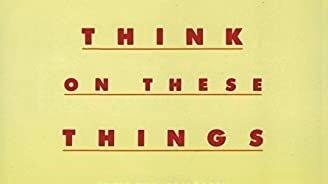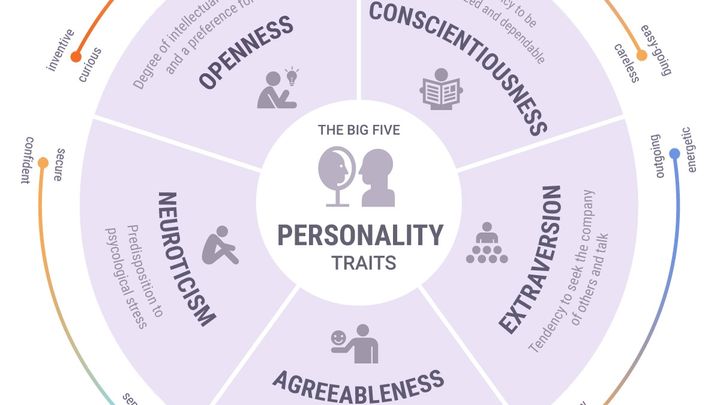How Abusers Think. Read This to Check If You're Toxic
The logic goes like this: When you call yourself a victim, it gives you the right to abuse your oppressor. They're the bad guy and you're the good guy, so standing up to them makes you moral – it makes you a hero.

After World War I, Germany was in an economic depression. They had lost the war and had to pay back the US and its allies more than they could afford. It was at this time that Adolf Hitler rose to power. Hitler then used the Jews as a scapegoat. He blamed them for all the misfortune of Germany. He then had 6 million Jews killed. In Hitler's mind, he was the victim. Germany was the victim of the jew's wrongdoing. This is how abusers think. They classify someone else as the abuser and then classify themselves as the victim. In this case, the Jews were seen as the abusers even though it is obvious that the Nazis were the true abusers. The Nazis created a false reality where the Jews were the abusers because that gave them the moral position to abuse them.
What defines an abuser?
I am sure that if the devil existed, he would want us to feel very sorry for him. – Martha Stout
All people want to view themselves as moral. So how can immoral people (like Hitler) do immoral things and still view themselves as moral? The logic goes like this: When you call yourself a victim, it gives you the "right" to abuse your oppressor. They're the bad guy and you're the good guy, so standing up to them makes you a hero.
Hitler pegged himself (and the Nazis) as the victims and the Jews as the oppressors. Today, we can see how backward that is. The same scenario plays out in many relationships today. A man or woman will claim to be the victim based on any perceived disrespect. This perceived disrespect (regardless of if the person was intentionally trying to disrespect them) gives them the moral "right" to retaliate. Then they abuse whoever is their perceived oppressor – it could be their partner, family, friends, etc.
The victim mentality is the one trait found in all abusers. Victim mentality = abusive.
Abusers will typically justify their abuse with perceived disrespect. For example, person 1 says, "Hey, good morning" to person 2. But person 2 doesn't reply because they didn't hear person 1. Person 1 perceives this as disrespect. Person 1 then plots to abuse person 2. The abuse does not have to be physical, it is often verbal or covert (silent treatment, yelling, manipulation).
What is the victim mentality?
The victim mentality means you blame others for your sadness or poor circumstances. They think that because other people are to blame for my sadness, I am morally justified to abuse them.
- They blame other people for their sadness or poor circumstances.
- They think "the world is out to get them."
- They assume others are purposely trying to hurt them.
- They are pessimistic.
- They don't take responsibility.
- They like to share stories about their bad experiences.
- They are unconfident.
- They think that they are the only victim. (The people they abuse are seen as oppressors, not victims themselves).
- They are closed-minded and will not take steps to improve their life.
What if I really am a victim?
“Everything can be taken from a [person] but one thing: the last of the human freedoms — to choose one’s attitude in any given set of circumstances, to choose one’s own way.” - Viktor Frankl (holocaust survivor)
If you really think you are a victim, you have a victim mentality – this blog post is for you. That doesn't mean that something bad didn't happen to you. But it does mean that you're probably abusive to others (or abusive to yourself) and don't realize it.
Some people turn inwards and abuse themselves rather than abusing others (or in addition to abusing others). This can manifest in many different ways: negative self talk, eating disorders, bad sleep schedule, poor hydration, no exercise, etc.
Tell the story of the girl who killed her dad. her dad was authoritarian and abusive, but she became the abuser when she murdered her dad. This girl was simultaneously both a victim and an abuser.
In reality, there are no clear distinctions between victim and abuser. Everyone is both simultaneously an abuser and abused. We have all done bad things to people and people have done bad things to us.
Everyone has had tragedy in their life or had a tragedy somewhere in their lineage – therefore everyone is a victim. When people say they're a victim, they really mean they have a victim mindset. They want the perks of being labeled a victim: attention, empathy, less criticism, and not having to take responsibility.
There's a documentary on Netflix called Human Nature. It features a kid who has sickle cell anemia. He has to do a painful blood transfusion procedure every few weeks or he'll die. The producers ask him if he wished he was born without sickle cell and he said no. Having sickle cell taught him valuable lessons and made him who he is. He is a "victim" who does not have the victim mentality.
How do I analyze myself?
Ask yourself these 3 questions:
- Do you have conflicts with virtually everyone around you? Maybe it's not all the other people. Maybe it's you.
- Do you believe that emotions or feelings are the truth? They're not. Bad things happen when people rely on emotion to drive their decisions. Virtually every spousal murder was driven by emotion rather than rational thinking.
- Do you believe that life is a battle between good people and evil people? Everyone is both good and evil. Thanos in The Avengers is seen as the villain in the movie but he is trying to change the world so that everyone would have enough food. Who is good and who is evil can easily change depending on the frame of reference.
How do you fix a victim complex?
There's only one way. Improve your health and knowledge.
Health
What does physical health have to do with a victim mindset? Physical health is directly linked to mental health.
What to do:
- Hydrate properly.
- Sleep 8 hours and go to bed at a decent time.
- Go to the gym. Start powerlifting. Yes, women too. No, it won't make you bulky.
- Eat healthy. Remove sugar.
Knowledge
What to do:
- Read 50 books per year. You can start with a lower goal (like 20 books/year).
What books do you recommend?
To overcome the victim complex, you will need lots of information on psychology and mindset. Most problems in life arise because you've been brainwashed with bad ideas. To fix this, brainwash yourself with good ideas (aka read good books). I recommend reading these books in this order:
- Can't Hurt Me by David Goggins (audiobook)
- A New Earth by Eckhart Tolle
- Mindset by Carol Dweck
- Atomic Habits by James Clear
- The Coddling of the American Mind by Jonathan Haidt
- The Courage to Be Disliked by Ichiro Kishimi
- The Laws of Human Nature by Robert Greene
- Understanding Human Nature by Alfred Adler
- Modern Man in Search of a Soul by Carl Jung
- The Obstacle is the Way by Ryan Holiday
- The Courage to Be Happy by Ichiro Kishimi
- A Guide to the Good Life by William Irvine
- Loserthink by Scott Adams
- The Righteous Mind by Jonathan Haidt
- The War of Art by Steven Pressfield
The growth mindset
It's difficult to change or start something new. Some people find it scary to go to the gym. Others think that reading is too difficult. You have to remember that everyone is a beginner when they do something new. You are going to be bad at first, but you have to stick with it for 3 months to make it a habit. After 3 months, you'll start seeing results and then those results will motivate you to continue.
Key takeaways
- All abusers have a victim mindset.
- Improve your health and knowledge to rid yourself of the victim mindset.
- If you rid yourself of the victim mindset, you will naturally stop abusing people.
How do I avoid getting abused myself?
- You need to have boundaries. Try to state your boundaries upfront – This can be difficult because there is no social precedent for this. Tell them that you read in a blog that it's a good idea to set boundaries upfront. If your boundaries are broken, you have to calmly inform the other person (rather than abuse them). And if the boundary is broken again, end the relationship.
- Send them this blog post.
- Set "boundaries" for yourself aka develop habits. For example, if you make it a habit to always drink a gallon of water a day, then you won't be able to use dehydration to abuse yourself.
What should I do next?
Health and knowledge are your foundation. Read this blog to know what to do next (relationships and wealth).



Comments ()